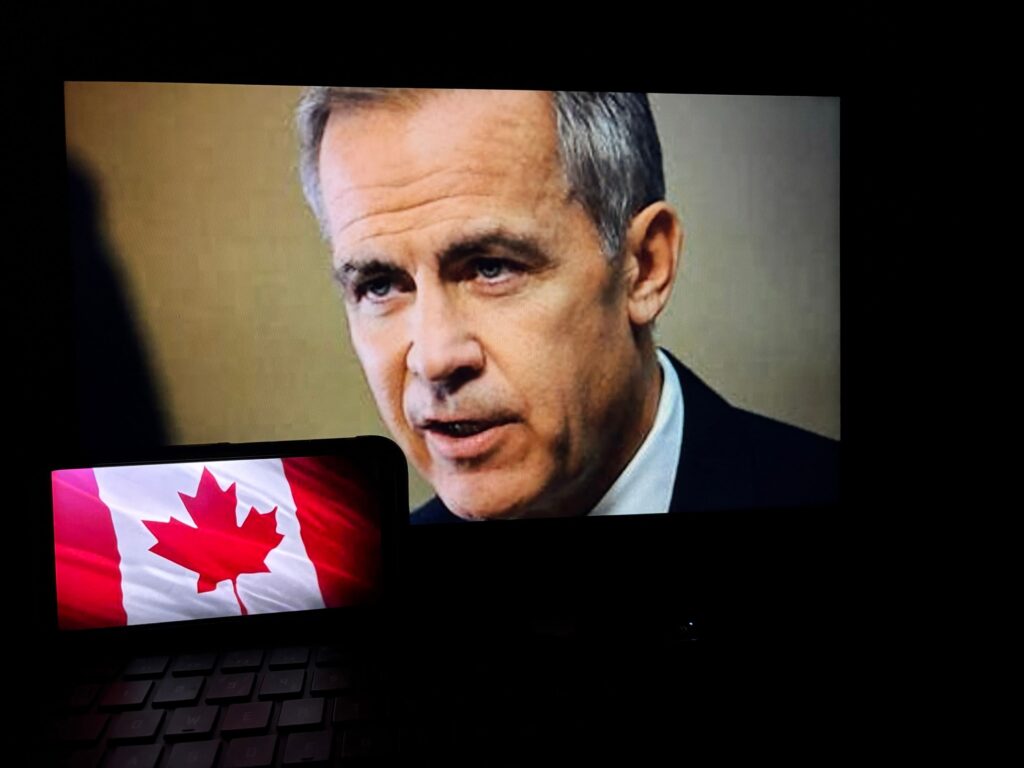After Canadian Prime Minister Justin Trudeau announced he will step down, influential climate alarmist Mark Carney is now a candidate for federal Liberal leadership in Canada, ahead of the federal election later this year. Carney debuted his bid on The Daily Show, talking climate and Canadian wildfire emissions, Friends of Science Society reports in a press release. Days prior, BlackRock withdrew from Carney’s ‘GFANZ’, the financial alliance meant to achieve Net Zero through climate finance. Carney was formerly head of the Canadian Central Bank, the Bank of England and United Nations special envoy for climate action and finance.

Mark Carney
Mark Carney made his political debut on The Daily Show with Jon Stewart on Jan. 13, 2025, highlighting climate change and Canadian wildfires and their emissions. A champion of Net Zero, Carney formally announced his federal Liberal Party leadership candidacy in Edmonton, oil capital of Alberta, on Jan. 16, 2025, as reported by BBC. Just days before, the Western Standard reported that BlackRock, the world’s largest asset manager, pulled out of Carney’s Glasgow Financial Alliance for Net Zero (GFANZ).
Ostensibly, Carney was on The Daily Show to shrug off president-elect Trump Tweets about Canada becoming the 51st State, while framing a narrative for his Liberal leadership run, which would make him de facto Prime Minister of Canada, if successful.
Carney stated in the interview with Stewart that the emissions of the 2023 wildfires in Canada had made Canada the fourth largest emitter in the world after the United States, says Friends of Science.
Carney claimed that insurance companies could see such disasters coming a decade ago due to climate change. However, large wildfires were common in the past, says Friends of Science, referring to Chinchaga Firestorm of 1950 which burnt 3.5 million acres of forest in northern B.C. and Alberta, and sent a smoke pall around the world. “The Untold Story of Pyrocumulonimbus” explores how massive ‘fire clouds’ affect climate in ways that are not well understood, demonstrating that carbon dioxide is not the only factor driving climate change.
While Carney was talking about Canadian oil and gas emissions with Stewart, as if a driver of wildfires, there was no mention of California’s energy industry.
According to the US EIA, “In 2023, California was the seventh-largest producer of crude oil among the 50 states, and the state ranked third in crude oil refining capacity. California is the largest consumer of jet fuel and second-largest consumer of motor gasoline among the 50 states.”
In 2020, Friends of Science issued a report by Robert Lyman, former federal public servant and diplomat, titled “The Stranded Assets Myth: Refuting Mark Carney’s Claims.” The province of Alberta has some 96% of Canadian oil reserves which have been mostly landlocked by the narratives of climate activists tied to the Tar Sands Campaign. In Canada, resources are owned by the province of Alberta.
As Stewart noted, Carney was governor of the Bank of England ten years ago. In a famous 2015 speech to Lloyd’s of London, titled: “Breaking the Tragedy of the Horizon” he set the tone on a catastrophic future and predicted massive insurance losses due to climate change.
Climate policy analyst Roger Pielke, Jr. is critical of billion dollar damage claims made by NOAA and others, made to justify climate action, as discussed in this June 2024 paper in Nature. Pielke, Jr., a 30 year veteran of climate and insurance risk assessments, disputes apocalyptic claims, based on evidence.
The misuse of RCP 8.5 as if “business-as-usual” has created the false illusion of a climate emergency, says Friends of Science. In Carney’s book “Values” he claims we must halve global emissions every decade. In fact, global emissions have gone up about 65% since the Rio Conference of 1992.
Ken Gregory is the research director for the Friends of Science. His analysis of the “Cost of Electrification of the USA” illustrates that “the total capital cost of electrification is herein estimated, using 2020 data, at US$290 trillion, or 13.5 times the U.S.A. 2019 gross domestic product.” Gregory and several other climate/energy experts discuss Net Zero issues in the documentary “A Climate Conversation.”
Recently, Clintel has posted a thoughtful discussion piece by Obama’s former chief scientist, Steve Koonin, and energy expert Mark Mills, showing how global climate arrangements like the Paris Agreement as “climate insurance” are unaffordable and unnecessary. The heart-breaking Los Angeles catastrophe demonstrates why public funds must be applied to practical public needs, not Green New Deals or Net Zero fantasies, says Friends of Science.
Friends of Science Society is a Canadian independent group of earth, atmospheric and solar scientists, engineers, and citizens that is celebrating its 22nd year of offering climate science insights. After a thorough review of a broad spectrum of literature on climate change, Friends of Science Society has concluded that the sun is the main driver of climate change, not carbon dioxide (CO2). Web: friendsofscience.org
